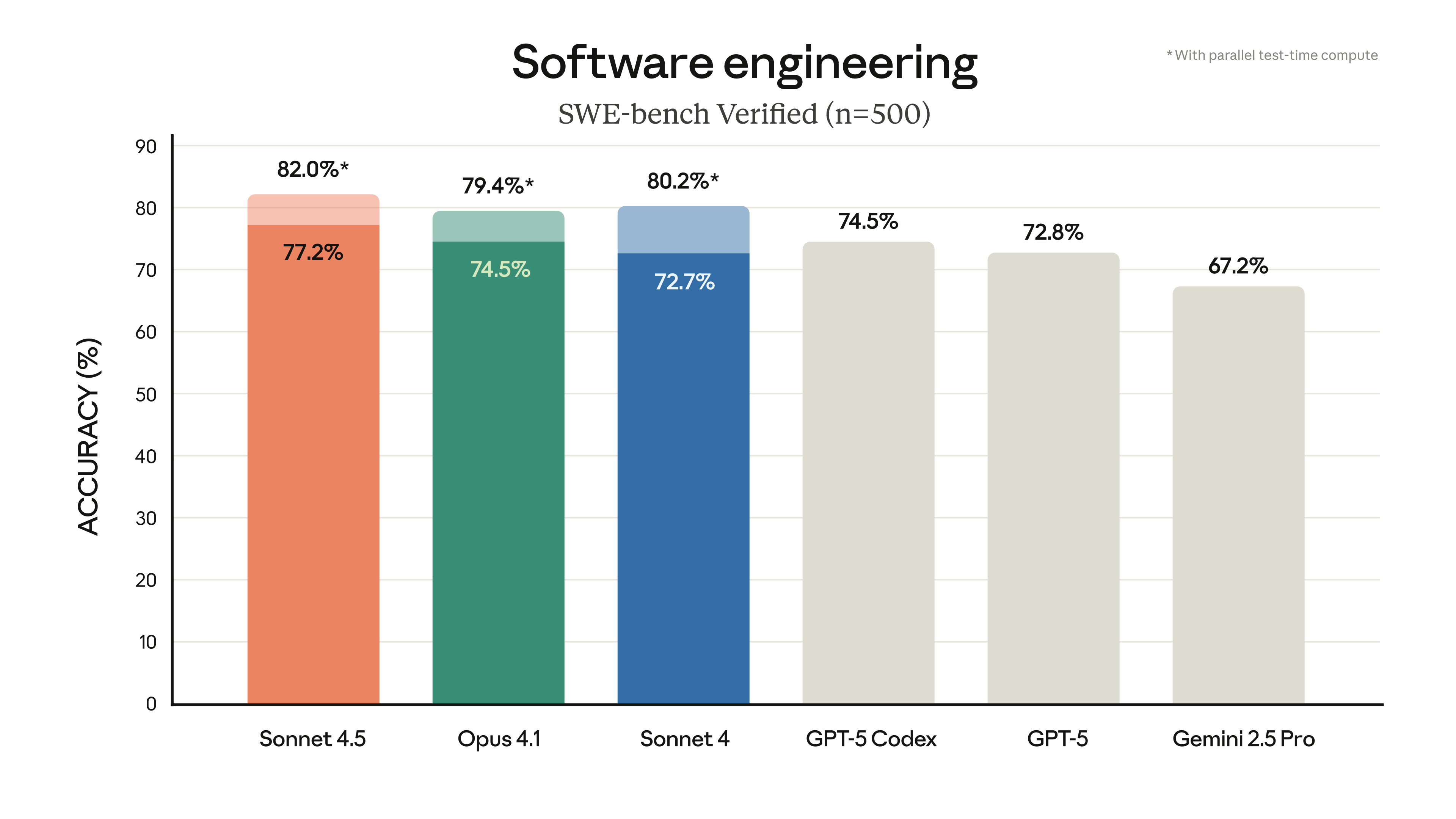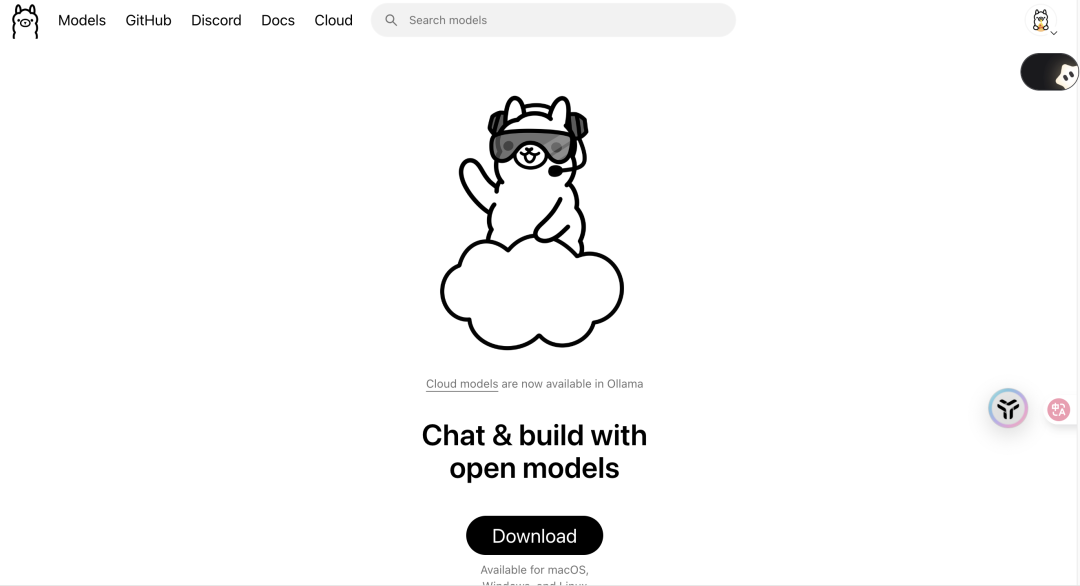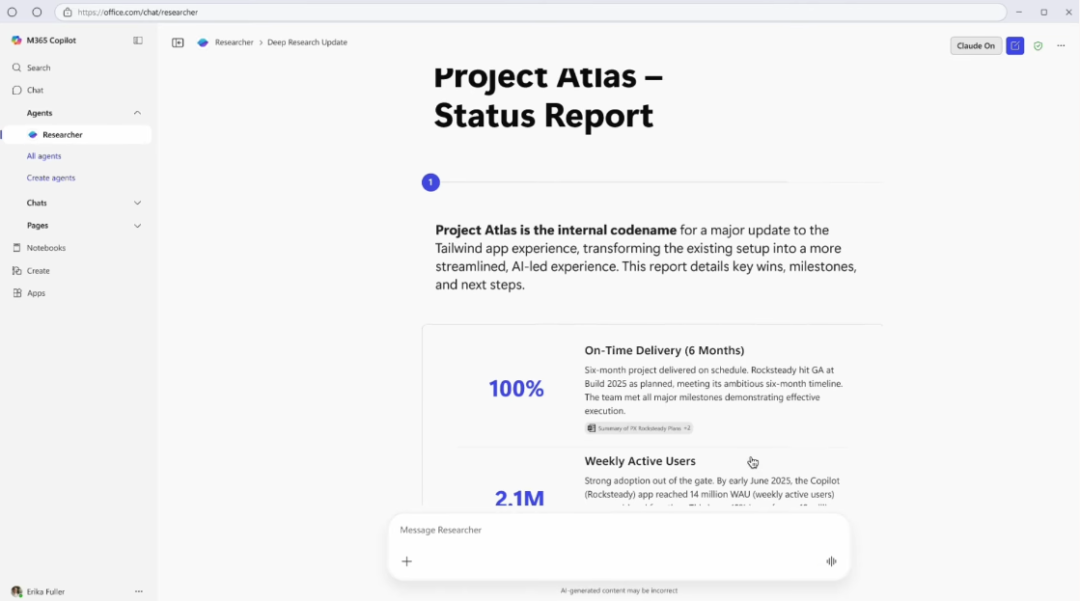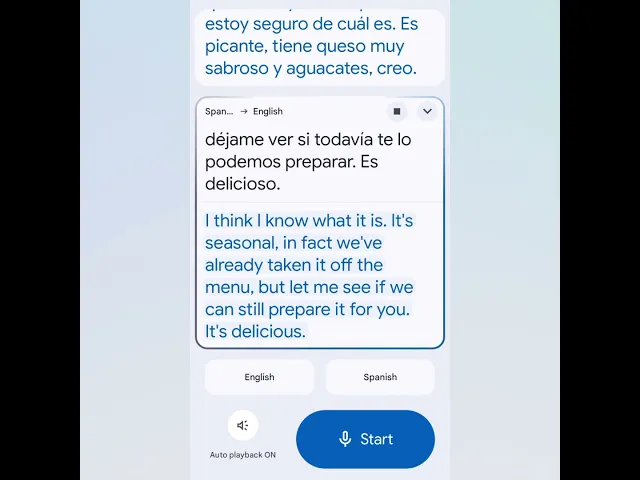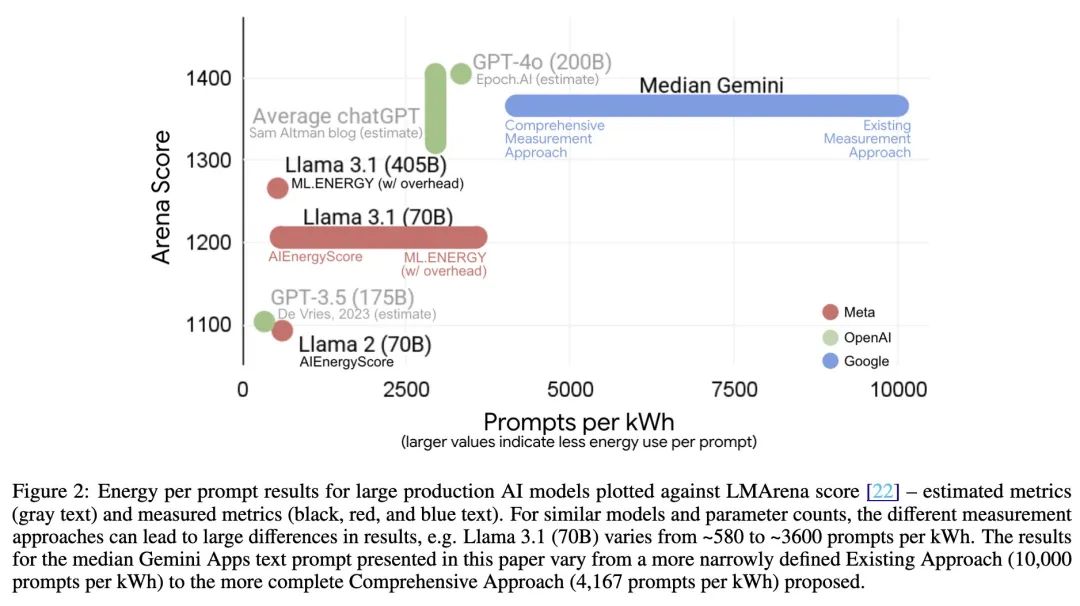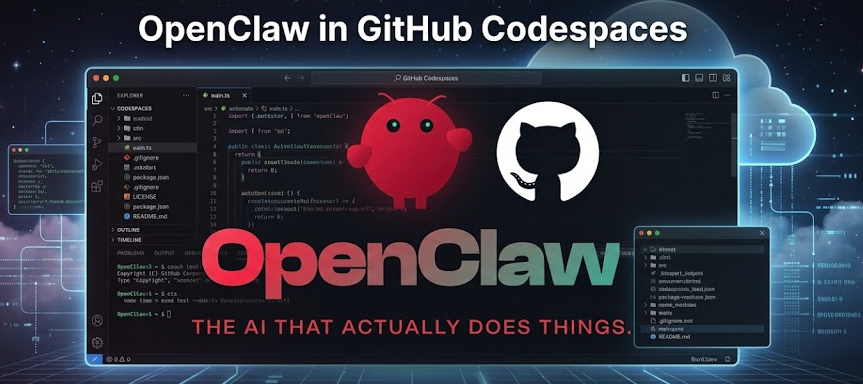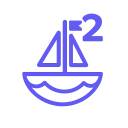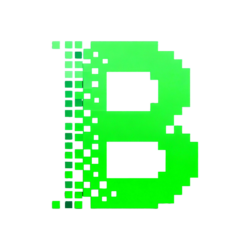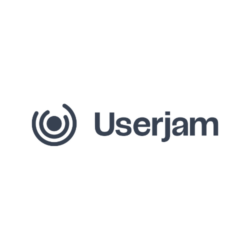With the increasing maturity of AI "deep research" function, it has become a powerful tool for many people to write research reports. However, in the face of the mainstream AI models on the market, how should users choose? In this article, we'll discuss the advantages and disadvantages of Google Gemini, OpenAI ChatGPT, Perplexity, and Anthropic Claude Four models are analyzed in depth for their report generation capabilities in a test on the Nintendo Switch 2 and how it differs from mainstream handhelds.
The rubric sets a cue word with relatively vague intent and is designed to test the model's ability to synthesize complex information as it is comprehended, planned, gathered, and presented.
Gemini: The Exhaustive Narrator
When instructed to do so, Gemini (2.5 Pro) first generates an outline of the study for the user to tweak, a step designed to ensure that the final output is more closely aligned with the user's needs. In this case, Gemini generated a 12,000-word report in 1 minute and 48 seconds without modification.
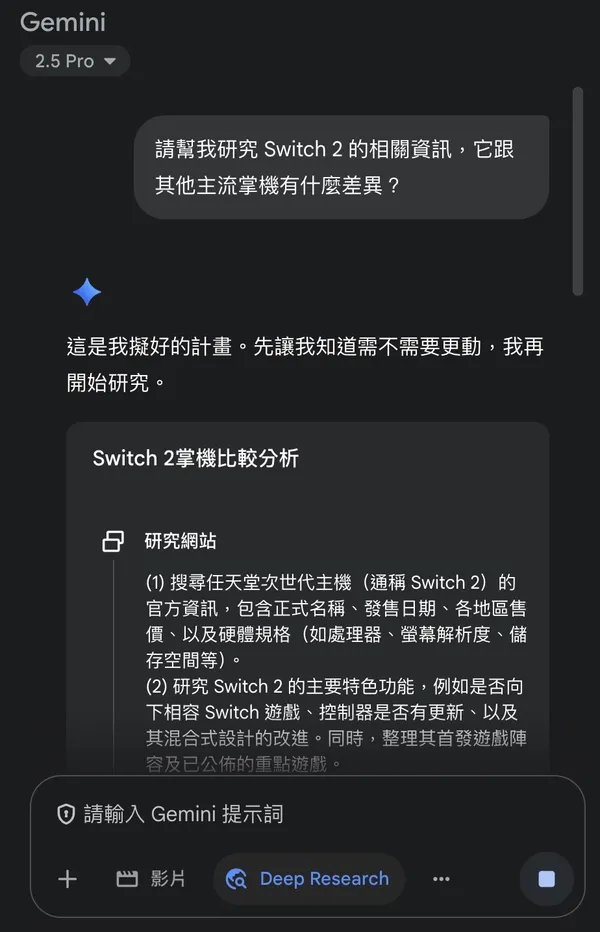
Structured in an almost academic style, from market pressures, to global presence, to hardware innovation, Gemini's strength lies in its ability to explain abstract "product positioning" through metaphor and contextualization, rather than simply piling on the numbers.
For example, it defines Steam Deck as "a PC first and a console second," while it describes ROG Ally users as "enthusiast gamers looking for a no-compromise 3A gaming experience on a handheld device. This approach helps readers understand the core differences between the different products. However, the word count of over 10,000 also brings a reading burden.
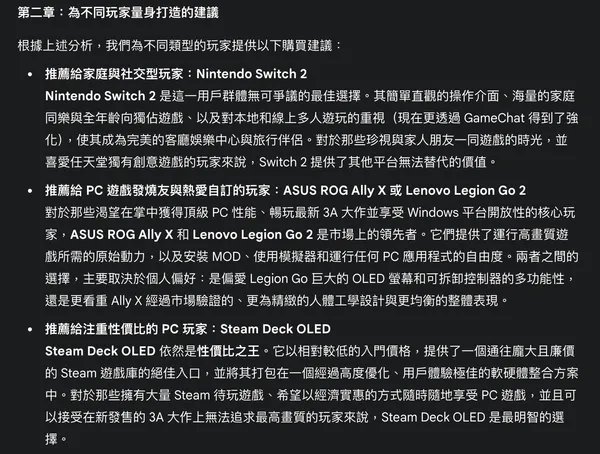
Gemini Another highlight of the program is its powerful secondary conversion capability. After the report is generated, users can convert it into web pages, infographics, quizzes or voice summaries with a single click, greatly expanding the application scenarios of the content.
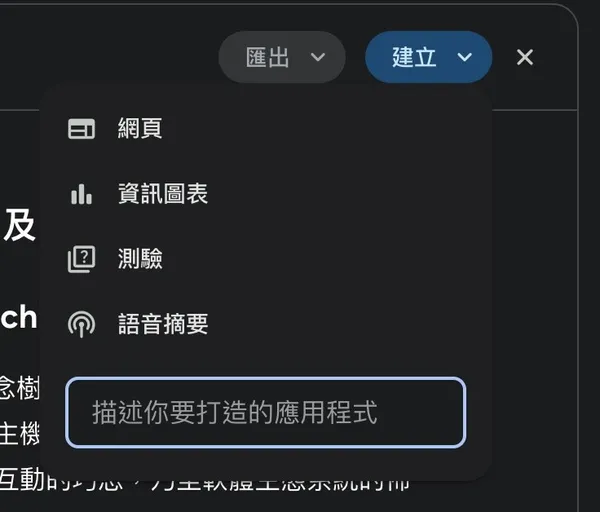
For example, the generated web version provides a succinct analytics dashboard, while infographics provide a visual comparison of the core parameters of each handheld.
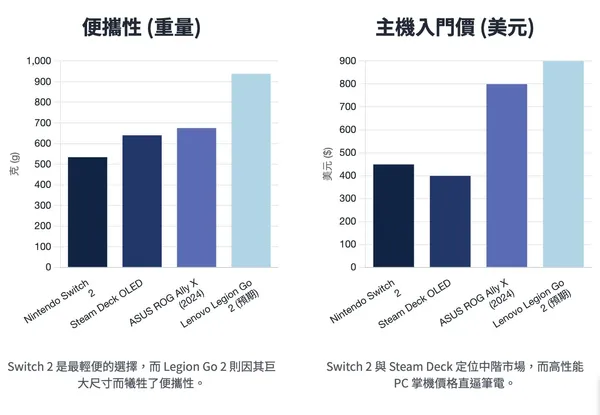
ChatGPT: Rigorous Technical Analysts
Similar to Gemini, ChatGPT (o3-pro) clarifies the user's intent by asking rhetorical questions before generating the report. After getting the additional explanation of "How to choose a handheld with a budget of 20,000 RMB", the model took about 13 minutes to generate a report of nearly 8,000 words.
ChatGPT The report's writing style is more technocratic, as it directly references a lot of jargon and precise data to support its arguments. For example, when describing the Switch 2's hardware, it details the CPU cores, GPU architecture, number of CUDA cores, and theoretical arithmetic power of TFLOPs of its custom SoC, and compares it side-by-side with the PS4 and PS4 Pro.
This style, which focuses on hard-core data analysis, is extremely valuable for users who need to compare specialized specifications. However, it also raises the bar for reading, and the large text descriptions and longer paragraphs detract from the typographic aesthetics and reading experience.
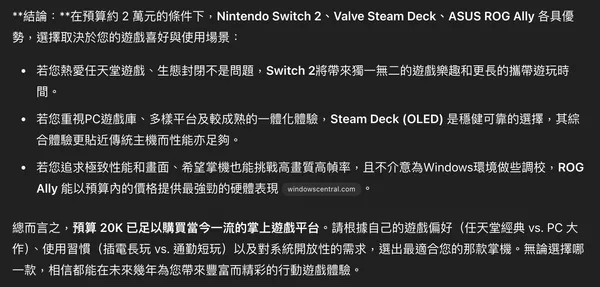
In the conclusion section, ChatGPT's recommendations are pertinent and rigorous, stating that users should make their choices based on game preference (Nintendo exclusives vs. PC blockbusters), usage habits, and the need for system openness. However, at present, its in-depth research model does not yet actively generate visualizations such as charts and graphs.
Perplexity: an efficient data extractor
Perplexity As an AI search engine, its core strengths are "fast" and "accurate". In deep research mode, it completed a report of about 2,500 words in one minute, which is the fastest among all models.
It's an extremely concise report, eschewing elaborate exposition in favor of focusing on presenting key data and facts. The article opens with the Switch 2's release date and price, and then goes straight into a comparison of the specs.
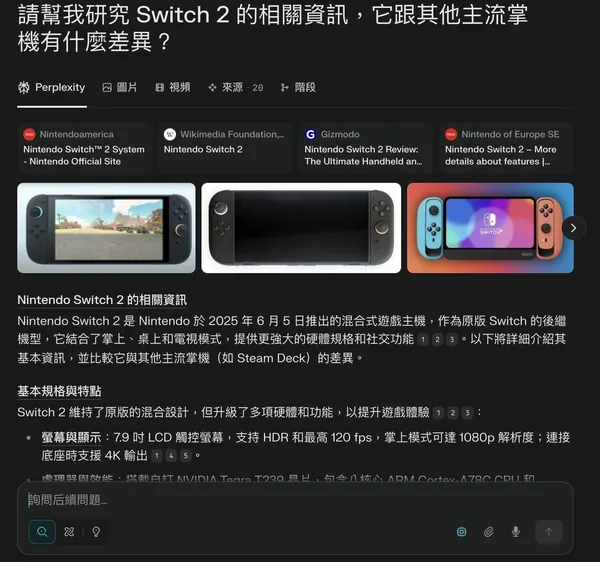
Perplexity has a knack for summarizing information using bullet points and simple language, such as when comparing the performance of the Switch 2 to the Steam Deck, where it gives clear conclusions such as "Theoretical GPU performance is 53% higher", "More stable in Cyberpunk Cyberpunk 2077" and "more stable performance in Cyberpunk".
This style is suitable for users who need to check core information quickly. However, the drawbacks are just as obvious - the report lacks in-depth analysis and perspective, and is of limited value to researchers looking for new ideas. In addition, the charts generated in this review contain data errors (e.g., screen size misplaced) and the price units are not prioritized for localization, requiring manual checking and correction before direct use.
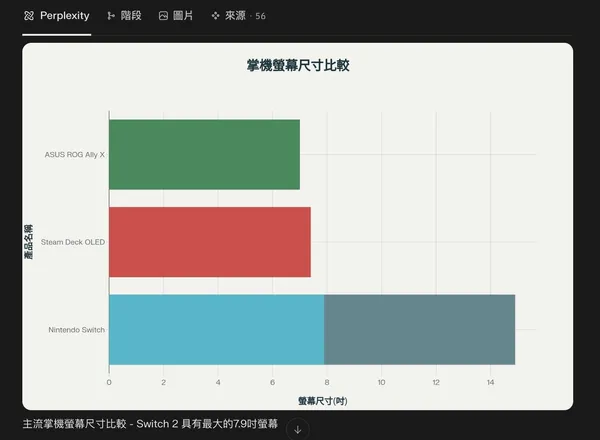
Claude: an interlocutor with untapped potential
As a late entrant into the in-depth research arena, Claude (opus 4) took about 7 minutes and 20 seconds to produce a report of about 3,200 words. It's worth noting that, like ChatGPT, it uses rhetorical questions to clarify the user's specific needs, such as asking for clarification on the definition of "mainstream handhelds" and the dimensions of the comparison.
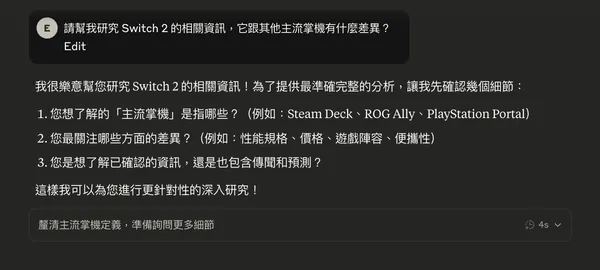
In terms of exposition, Claude shows great potential to use analogies to explain complex performance data, just as Gemini does, such as comparing the power consumption of the Switch 2 and the Steam Deck when running Rogue Train 2077, which vividly illustrates the former's huge advantage in power efficiency.
A unique advantage is that Claude clearly labels the source of information in his reports as "rumor/leak", reflecting his caution when dealing with unofficial information.
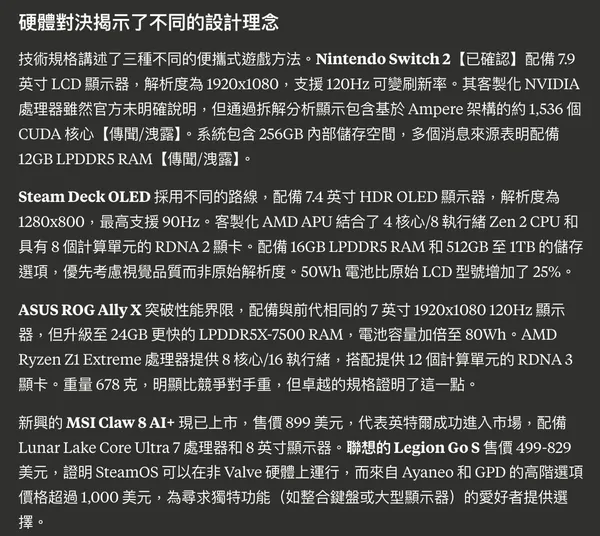
However, Claude's shortcomings are also very prominent. First, the structure of the article needs to be optimized, as the whole article is basically composed of long paragraphs and lacks columns and tables, making it difficult to read data-intensive content such as hardware specifications. Second, in this test, although questions were asked in traditional Chinese, the main body of the report was generated in English, and after requesting a translation, the original embedded citation links were lost, which made subsequent fact-checking extremely inconvenient.
Comparative analysis and selection recommendations
To summarize, there is no absolute "strongest" model, only the "most suitable" choice.
| Player Model | prices | screen (TV, computer or movie) | stockpile | Core Advantages |
|---|---|---|---|---|
| Nintendo Switch 2 | $$450 [2] | 7.9-inch, 1080p LCD, 120Hz [3] | 256GB (microSD Express Card Expansion Required) [2, 3] | Nintendo Exclusive Gaming Ecosystem, Great Portability [1] |
| Steam Deck OLED | $ $549 (512gb) [2] | 7.4-inch, 800p OLED, 90Hz [2] | 512GB/1TB (legacy microSD support) [2] | Huge library of Steam games, openness of the PC ecosystem [1] |
| ASUS ROG Ally X | $$899 [3] | 7-inch, 1080p LCD, 120Hz [3] | 1TB/2TB [3] | Windows, Extreme Hardware Performance [3] |
- Pursuing Depth and Breadth: If you need to find comprehensive information and in-depth perspectives for a research paper or academic essay.Gemini is the preferred choice. Its powerful integration of information and narrative can provide a wealth of insight, but you need to be patient enough to read and distill it.
- Focus on Technology and Data: If you need to make precise hardware specification comparisons or in-depth technical analysis, theChatGPT More appropriate. It delivers expert hardcore data and rigorous logic chains, but it's not friendly enough for non-specialists.
- Efficiency and speed: If you just need quick access to core facts and a summary of key data.Perplexity It is undoubtedly the best tool. It provides the most concise information in the shortest possible time, but don't expect to get deep analysis from it.
- A preference for dialog and exploration: if you like to clarify and dig into issues through repeated communication with the AI.Claude The interaction mechanism may be more suitable for you. It's expository capabilities are promising, but there are still significant shortcomings in the structuring and citation reliability of the report.
Ultimately, which AI tool you choose depends on your specific needs, usage scenarios, and varying focus on report depth, speed, and readability.



